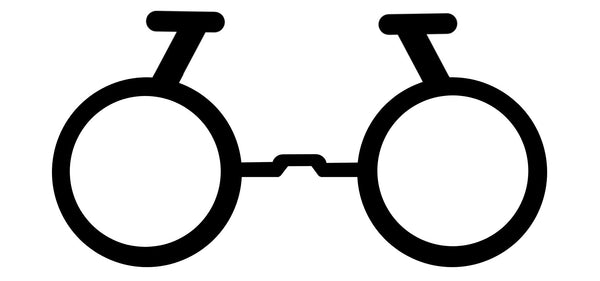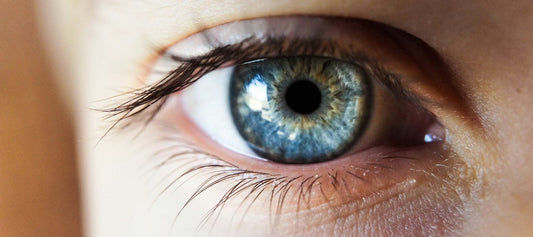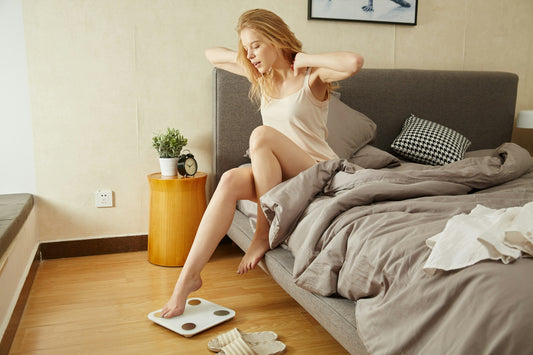
Why Blue Light Glasses Make Life Easier and When to Wear Them
Share
In today’s digital world, screens are an inevitable part of our daily lives. Whether it’s working on a computer, scrolling through social media on a phone, or relaxing in front of the TV, we are constantly exposed to blue light emitted by digital devices. While technology has undoubtedly improved many aspects of life, prolonged exposure to blue light can lead to a variety of issues, including eye strain, disrupted sleep, and even long-term damage to your vision.
This is where blue light filtering glasses come into play. These specially designed glasses filter out harmful blue light, making your day-to-day life a little easier and your screen time a lot more comfortable. But how exactly do they help, and when should you wear them? Let’s explore the key benefits and best times to wear blue light glasses.
The Benefits of Blue Light Glasses
Conclusion
In a world where screen time is constantly increasing, blue light filtering glasses have become a practical tool for improving daily life. By reducing eye strain, boosting productivity, and protecting your long-term eye health, these glasses are a simple yet effective way to make your screen time more comfortable.
Whether you’re working, studying, or simply relaxing, consider incorporating blue light glasses into your routine to enjoy better sleep, enhanced focus, and healthier eyes.
This is where blue light filtering glasses come into play. These specially designed glasses filter out harmful blue light, making your day-to-day life a little easier and your screen time a lot more comfortable. But how exactly do they help, and when should you wear them? Let’s explore the key benefits and best times to wear blue light glasses.
The Benefits of Blue Light Glasses
- Reduced Eye Strain - Spending hours in front of a screen can cause your eyes to feel tired, dry, and irritated. Blue light filtering glasses alleviate this discomfort by reducing the amount of blue light that reaches your eyes. This can help prevent headaches, reduce squinting, and even improve focus during long work or study sessions.
- Improved Sleep Quality - Blue light, particularly in the evening, can interfere with your body’s natural production of melatonin, the hormone responsible for regulating sleep. Wearing blue light glasses in the evening or while using devices before bed helps maintain your body’s natural sleep cycle. As a result, you’ll fall asleep faster and enjoy more restful sleep.
- Boosted Productivity and Focus - By reducing eye strain and discomfort, blue light glasses help you stay focused for longer periods. Whether you’re working, studying, or even gaming, you’ll notice improved concentration and productivity. The glasses eliminate the fatigue caused by staring at screens, allowing you to stay sharp and perform at your best.
- Long-Term Eye Protection - Constant exposure to blue light can contribute to long-term eye damage, increasing the risk of macular degeneration and other vision problems. Wearing blue light filtering glasses helps protect your eyes in the long run, reducing the cumulative effects of blue light exposure over time.
When Should You Wear Blue Light Glasses?
To get the most out of blue light glasses, it’s important to wear them at the right times. Here are the key moments in your day when blue light glasses can make the biggest impact:
- While Working or Studying on a Computer - If you spend long hours working or studying on a computer, blue light glasses are a must. They will help you avoid digital eye strain and stay focused throughout your workday.
- During Extended Screen Time - Whether you’re binge-watching your favorite series, scrolling through social media, or playing video games, blue light glasses will help reduce eye fatigue and prevent headaches.
- In the Evening Before Bed - Wearing blue light glasses a few hours before bed can improve your sleep quality by preventing the blue light from disrupting your circadian rhythm. This is especially important if you like to relax by watching TV or browsing your phone before sleep.

- Outdoors in Natural Light - Blue light isn’t just emitted by screens - it’s also present in natural sunlight. Some blue light glasses are designed for outdoor use, offering protection from both UV rays and blue light, making them a great option for people who spend a lot of time outside.
Conclusion
In a world where screen time is constantly increasing, blue light filtering glasses have become a practical tool for improving daily life. By reducing eye strain, boosting productivity, and protecting your long-term eye health, these glasses are a simple yet effective way to make your screen time more comfortable.
Whether you’re working, studying, or simply relaxing, consider incorporating blue light glasses into your routine to enjoy better sleep, enhanced focus, and healthier eyes.



